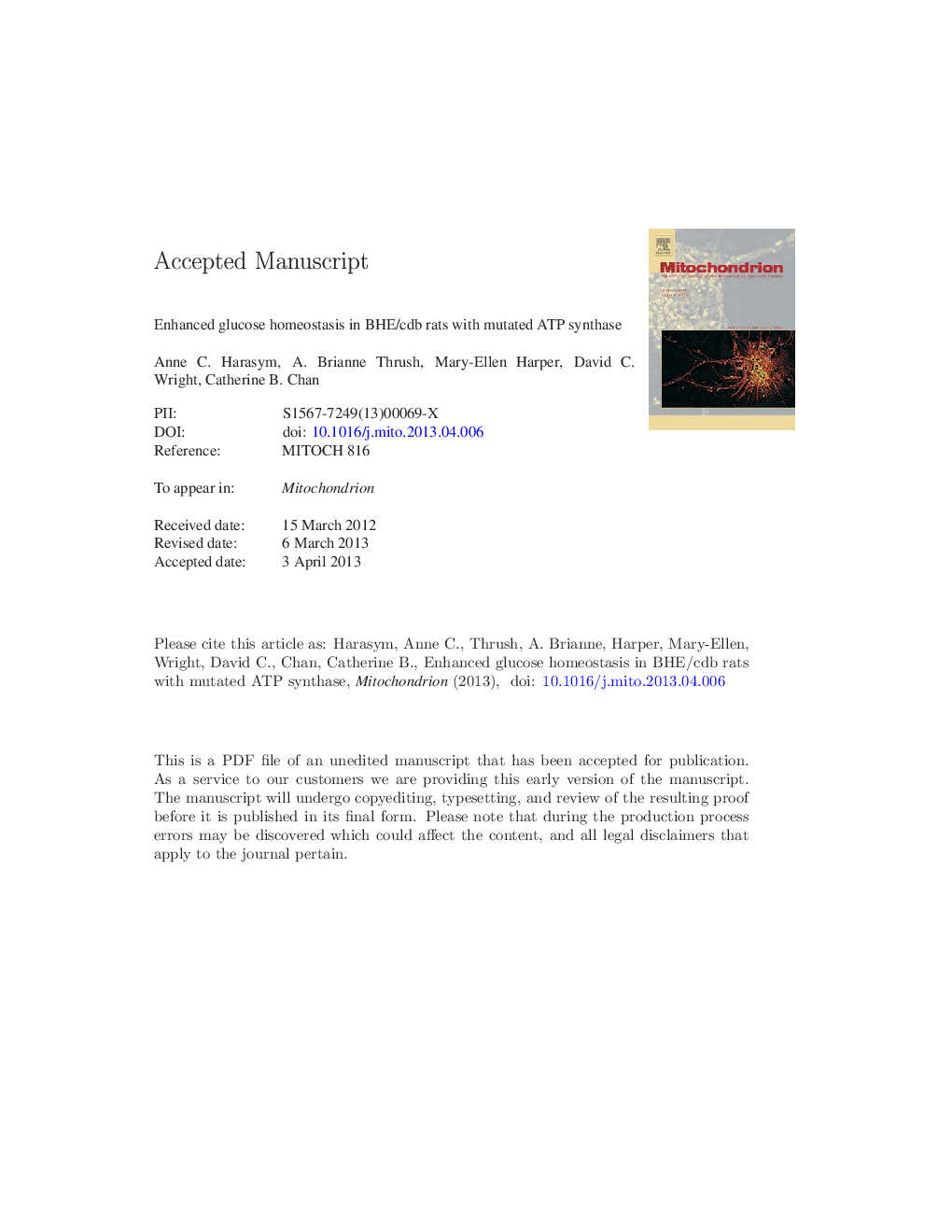| Article ID | Journal | Published Year | Pages | File Type |
|---|---|---|---|---|
| 10883071 | Mitochondrion | 2013 | 43 Pages |
Abstract
The BHE/cdb rat has a mutation in adenosine triphosphate (ATP) synthase that impairs insulin secretion. However, male BHE/cdb rats have normal circulating glucose and enhanced glucose tolerance. The aim of the current study was to identify mechanisms of enhanced glucose tolerance. The respiratory exchange ratio was increased, indicating increased oxidation of carbohydrate in BHE/cdb rats, consistent with increases in liver pyruvate dehydrogenase activity and muscle citrate synthase activity. Liver also exhibited diminished phosphoenol pyruvate carboxykinase content, which correlated with a decreased counter-regulatory response in the insulin tolerance test. Signaling via Akt or AMP-dependent kinase pathways in the liver could not account for lower blood glucose. We conclude that chronically low insulin secretion leads to adaption in glucose metabolism primarily in liver to maintain euglycemia.
Keywords
AMPKMEF2APDHACCRERNEFAAMPVO2GAPDHOGTTVCO2PEPCKAUCIPGTTAdenosine TriphosphateATPadenosine monophosphateinsulin tolerance testOral glucose tolerance testintraperitoneal glucose tolerance testGlucose effectivenessacetyl coA carboxylasenon-esterified fatty acidsITTGlucose toleranceCarbon dioxide productionInsulin sensitivityglucose transporter 4mitochondrial diabetesInsulin signalingphosphoenol pyruvate carboxykinaseOxygen consumptionarea under the curveRespiratory exchange ratiopyruvate dehydrogenaseClamsGlut 4Gluconeogenesisglyceraldehyde-phosphate dehydrogenase
Related Topics
Life Sciences
Biochemistry, Genetics and Molecular Biology
Biophysics
Authors
Anne C. Harasym, A. Brianne Thrush, Mary-Ellen Harper, David C. Wright, Catherine B. Chan,
